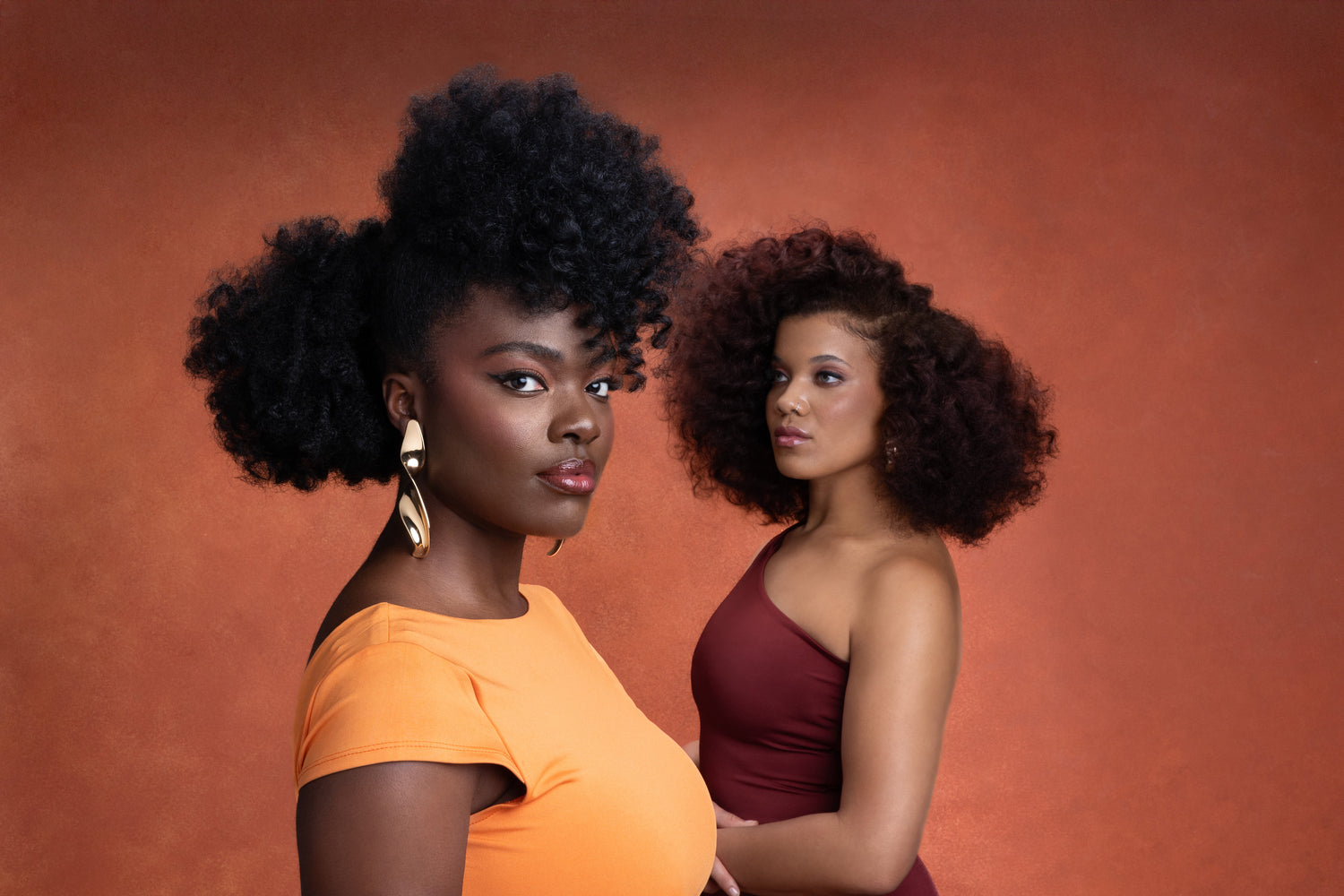When it comes to afro hair care, we often talk about how important it is to create a regime. But how do you approach this when we’re in the middle of a pandemic and you’re working on the front line?
We’re grateful for the wonderful essential workers in our community. Recently, we’ve spoken to many doctors, nurses and others on the frontline so we’ve put together this guide to answer the most common questions. These FAQs will give afro hair care advice for essential workers that’s simple to follow, practical and written to help protect you.

How Often Should I Wash My Hair?
We are constantly being told that we need to wash our hands. Surely, the same applies to our hair? There is a lot unknown about Covid-19, but the recommendation is that essential workers should wash their hair more frequently (and in many cases, daily). A good sulphate-free, natural shampoo is gentle enough to use every day. Follow up with extra conditioner to avoid your hair drying out and to reduce the static in washed hair that encourages microparticles to stick to it.
Is There Anything Else I Should Be Cleaning?
Quite a lot is unknown about Covid-19 but it wouldn’t hurt to give your styling tools like brushes and combs a periodic deep clean. Normally, it’s recommended to do this every two-three weeks, so consider increasing the frequency to weekly tool washing during this time.
You can easily clean your tools by removing any hair in the bristles and teeth, then putting a few drops of your shampoo, or Dettol into a bowl of warm water and immersing your brushes and combs in the water. Rinse with clean water, shake off the excess water and leave to dry on a towel.
How Can I Look After My Hair When I’m Washing It All The Time?

We know that increasing the frequency at which you wash your hair can play havoc with it. The reason your hair can become dry and damaged from over washing is because of hygral fatigue. This is a weakening of the hair which is caused by the repeated expansion and contraction of hair each time it is washed (the hair shaft expands as it fills with water and then contracts as it dries). Ultimately, hygral fatigue can result in dryness, breakage, weak hair and split ends – basically, everything we want to avoid!
One way to avoid hygral fatigue is by pre-treating your hair coconut oil before washing it. Coconut oil has been proven to protect hair by binding to the proteins in the hair shaft meaning that fewer water molecules can bind to the hair and less swelling happens.
Another way to look after your hair is by drying your hair quickly. This is because it minimises the opportunity for damage to the hair structure. But that doesn’t mean you should reach for your hair dryer! We recommend steering clear of heat and using a microfibre towel turban to avoid any heat damage. Not to mention, you want to avoid having wet hair outside as wet hair is a better culture medium for infections. So, avoid throwing your wet hair into bun or pineapple and dry your hair as much as you can before heading out.
Can’t I Just Give My Hair A Break And Co-wash It Or ‘Wash’ My Hair With Conditioner?
Pandemic or not, ‘washing’ your hair with conditioner isn’t something we would suggest. Shampoos work by removing dirt from the hair and scalp, and conditioners do not have the cleansing properties to effectively clean your hair. Save your conditioner for after you’ve washed your hair.
Swish, our sulphate-free shampoo is pH balanced, gentle enough to be used frequently and cleans without stripping your hair of moisture.
How Can I Keep My Hair Moisturised?

As we know, afro and curly hair are prone to dryness, mix this with the increase of hair washing and it’s potentially a dry hair disaster. To avoid this, we recommend layering your hair products using the LOC and LCO methods.
The acronym indicates the order by which the products (L = liquid O = oil and C = cream) should be applied to your hair.
For your liquid, a water-based moisturising product in the form of a spray is best. We recommend Sheen, a water based blend of aloe vera juice, grape seed oil and essential oils.
A relatively thick oil blend is needed to seal in moisture because water evaporates easily from the hair. The best blends contain olive oil, coconut oil, castor oil and jojoba oil, which are all contained in our oil, Seal.
For your cream step, use a moisturising cream or leave-in conditioner. We recommend Smooth, with its blend of coconut oil, olive extract and organic and fair trade shea butter.
Using this method after you’ve washed your hair will help you lock in moisture and combat dryness.

Our Moisture Surge Set contains products for all three steps — Sheen natural moisturising spray (liquid), Seal (hair oil) and Smooth (moisturising cream).

